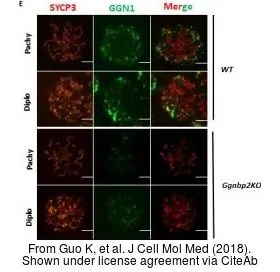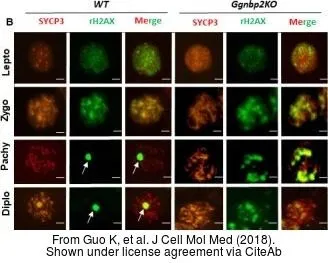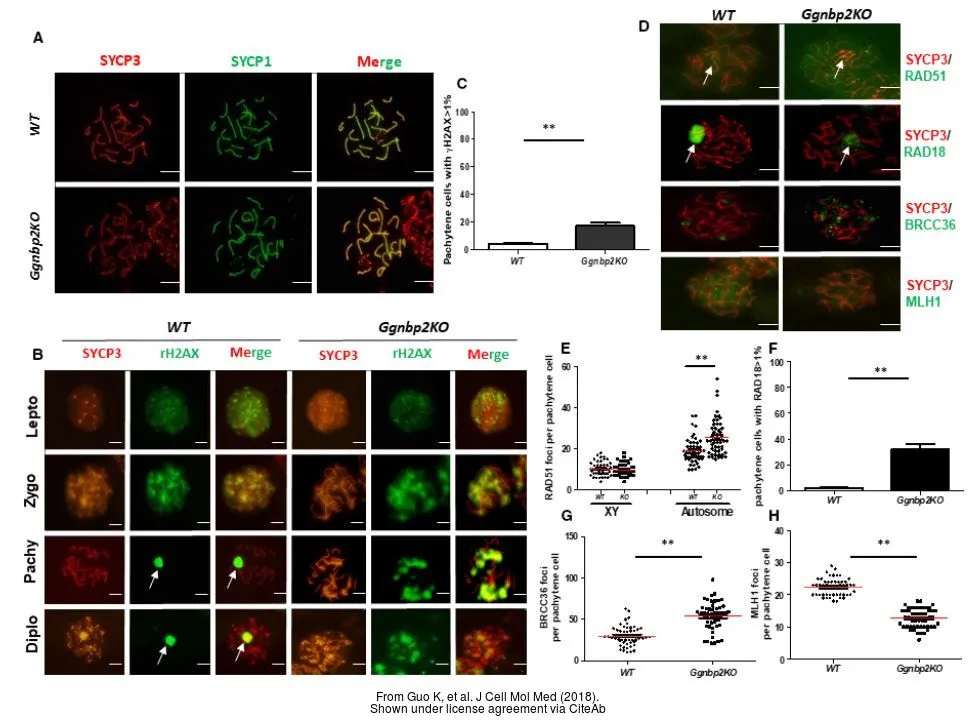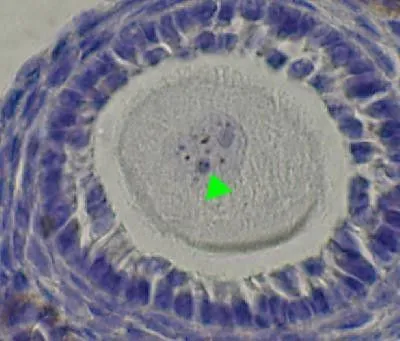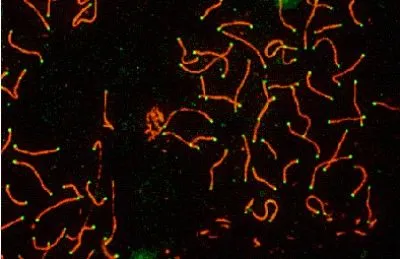
ICC/IF analysis of mouse pachytene preparation using GTX15092 SCP3 antibody. Red : primary antibody Green : CDK2
SCP3 antibody
GTX15092
ApplicationsImmunoFluorescence, Western Blot, ImmunoCytoChemistry, ImmunoHistoChemistry, ImmunoHistoChemistry Frozen, ImmunoHistoChemistry Paraffin
Product group Antibodies
ReactivityHuman, Mouse
TargetSycp3
Overview
- SupplierGeneTex
- Product NameSCP3 antibody
- Delivery Days Customer9
- Application Supplier NoteICC/IF: 1:100 - 1:750. IHC-P: 1:750. IHC: 1:750. *Optimal dilutions/concentrations should be determined by the researcher.Not tested in other applications.
- ApplicationsImmunoFluorescence, Western Blot, ImmunoCytoChemistry, ImmunoHistoChemistry, ImmunoHistoChemistry Frozen, ImmunoHistoChemistry Paraffin
- CertificationResearch Use Only
- ClonalityPolyclonal
- Concentration1 mg/ml
- ConjugateUnconjugated
- Gene ID20962
- Target nameSycp3
- Target descriptionsynaptonemal complex protein 3
- Target synonymsCo; Cor1; Sc; Scp3; SCP-3; synaptonemal complex protein 3
- HostRabbit
- IsotypeIgG
- Protein IDP70281
- Protein NameSynaptonemal complex protein 3
- Scientific DescriptionComponent of the transverse filaments of synaptonemal complexes (SCS), formed between homologous chromosomes during meiotic prophase. Required for axial elements (AE) in meiotic cells and for assembly of the synaptonemal complex. May be important for testis development and male fertility.
- ReactivityHuman, Mouse
- Storage Instruction2°C to 8°C
- UNSPSC12352203
References
- Ablation of Ggnbp2 impairs meiotic DNA double-strand break repair during spermatogenesis in mice. Guo K et al., 2018 Oct, J Cell Mol MedRead more
- TDRD5 is required for retrotransposon silencing, chromatoid body assembly, and spermiogenesis in mice. Yabuta Y et al., 2011 Mar 7, J Cell BiolRead more
- BRIT1/MCPH1 is essential for mitotic and meiotic recombination DNA repair and maintaining genomic stability in mice. Liang Y et al., 2010 Jan 22, PLoS GenetRead more
- Oocytes in newborn MRL mouse testes. Otsuka S et al., 2008 Jul, Biol ReprodRead more

